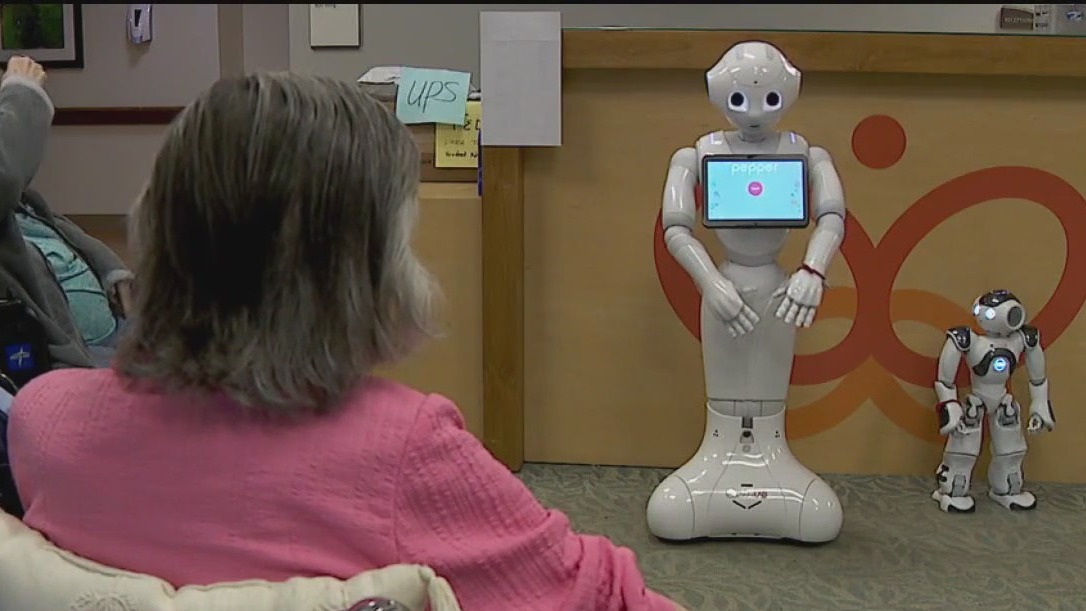Artificial intelligence making life easier in senior living facilities

AI making life easier in senior homes
For today’s seniors, artificial intelligence was usually the stuff of science fiction and wild imaginations. But now it’s reality and it’s making their lives easier in a lot of ways. Carpets stay clean at the Commons on Marice in Eagan with a little robotic reinforcement.
EAGAN, Minn. (FOX 9) - For today’s seniors, artificial intelligence was usually the stuff of science fiction and wild imaginations. But now it’s reality and it’s making their lives easier in a lot of ways.
Carpets stay clean at the Commons on Marice in Eagan with a little robotic reinforcement. The automatic vacuum doesn’t have a name yet, but her artificially intelligent co-worker does.
"This is the Bella bot that we use in the dining room here," said Al Baker, director of innovation for the Goodman Group, which owns several senior living facilities.
Bella helped solve a staffing issue during the pandemic and she’s kept on rolling with a little human help and programming.
"It’s fairly simple," Baker said. "It’s all interactive right here."
Bella delivers written orders from the dining room to the kitchen and returns with plates full of food. She dances back and forth up to 20 times a day, freeing up her human co-workers to focus on more crucial and intricate work at the assisted living facility.
A Macarena dance is led by a pair of robots at The Estates at Roseville, where frequent dance parties are aimed at helping the residents’ well-being.
"I like the robots because they help me," said resident Frances Fry.
RELATED: Roseville nursing home brings in robots to help with patient care
"The thought’s actually pretty simple," said Marcus Kubichek, the robot program director for Monarch Healthcare Management, which owns The Estates and other facilities like it. "It's innovative care through smiles, quality of life, customer service and innovation."
"Exercising and dancing," said resident Joyce Prothe. "I like that."
Joyce, Irene, Frances, Marlene got in the groove with the big robot, Pepper, and the little robot, Rosie.
"Why do I like them?" said Irene Struck. "They’re new."
The bots came to Monarch Healthcare through a partnership with the University of Minnesota Duluth to encourage physical activity — improving range of motion, heart health, and even mental activity.
"So we have noticed that it has helped with depression," said Dr. Arshia Khan, an automation and engineering professor and the director of science and engineering graduate studies at UMD. "It has helped with cognition and it has helped reduce their anxiety as well."
Some of Dr. Khan’s research is pending patents, so the public can’t yet see some of Pepper and Rosie’s talents, like leading yoga sessions and telling jokes.
But after a year at the skilled nursing facility, they’ve become so popular residents almost can’t imagine their lives without a little help from artificial intelligence.
Dr. Khan says she needs more grants or private funding, but her research could lead to more affordable AI — devices like Pepper and Rosie, priced at $10,000 or less.
"The idea is to help them with their quality of life," she said. "At least try to maintain their quality of life, postpone and delay their admission into assisted living and nursing homes, and keep them independent longer."

